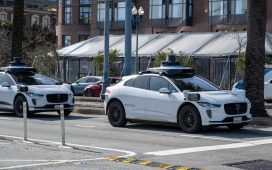When I first met Emmanuel Coreano, a Puerto Rican student from Kensington, he was living with his disabled mother in a dilapidated row home that lacked hot water and electricity. The rooms were filthy and mold-ridden. The bathtub was at risk of falling through the cracked ceiling into the kitchen. One night, Emmanuel was sleeping when he woke up to a sharp pain. Tasting something metallic, he touched his lip, and in the glow of his phone screen he could see that his finger was stained with blood. A rat had bitten him.
Still, this was the best housing that his mother could find on her limited budget; she had no earnings and relied on Supplemental Security Income and Temporary Assistance for Needy Families. “I remember asking God to give me a happy home,” Emmanuel wrote in a poem. “One where the neighborhood was good, where I didn’t have to care about the anger in people’s hearts, where I didn’t have to worry about getting shot up in a park.”
Despite experiencing housing precarity and economic hardship, Emmanuel managed to graduate from El Centro de Estudiantes, a last-chance alternative high school, thanks to the support of caring educators. He was an adult when Donald Trump and Joe Biden enacted trillions of dollars of the most significant anti-poverty measures in decades — economic impact payments, expanded unemployment insurance and the expanded child tax credit. Tens of millions of Americans were kept out of poverty and economic insecurity as a result; in another world, a younger Emmanuel could have been one of them. The stark relief that pandemic programs brought to families is proof that poverty is not an intractable problem when there is sufficient political will.
The economist Amartya Sen has argued that poverty is not simply the condition of low income, it is also “the deprivation of basic capabilities,” which he defines as “the substantive freedoms he or she enjoys to lead the kind of life he or she has reason to value.” To guarantee such economic and social freedoms, we also need to reverse decades of privatization and austerity and invest in equitable public goods: education, health care, housing, child care, broadband, utilities, food and other sectors.
As a senior policy adviser for Bernie Sanders, who was then the chair of the Senate Budget Committee, I spent six months in 2021 helping my colleagues draft, revise and negotiate the details of the Build Back Better bill. We dreamed of achieving a feat akin to the New Deal, so it was devastating to watch the original $6 trillion, 10-year spending plan get hacked to $3.5 trillion, and then $1.75 trillion, only to die in the Senate. A dramatically pared-down version of that bill, the Inflation Reduction Act, made transformative investments, but nearly all of Build Back Better’s original measures were left out. We should recommit to finishing the job and passing an agenda that will reduce child poverty and make life more affordable.








